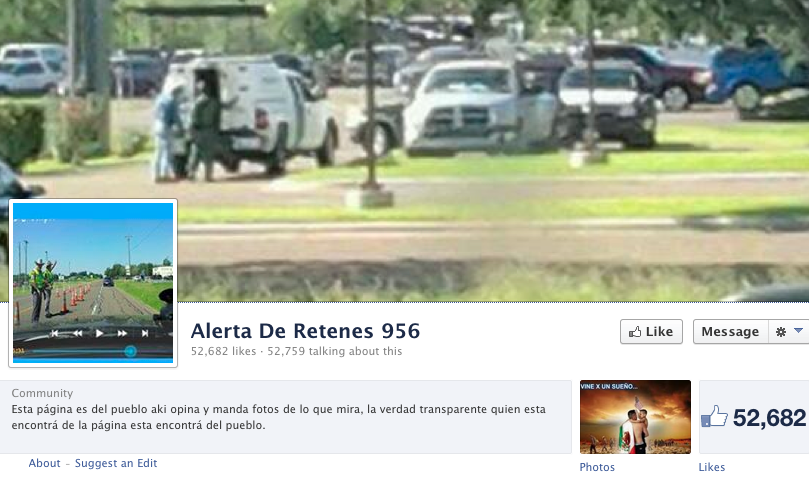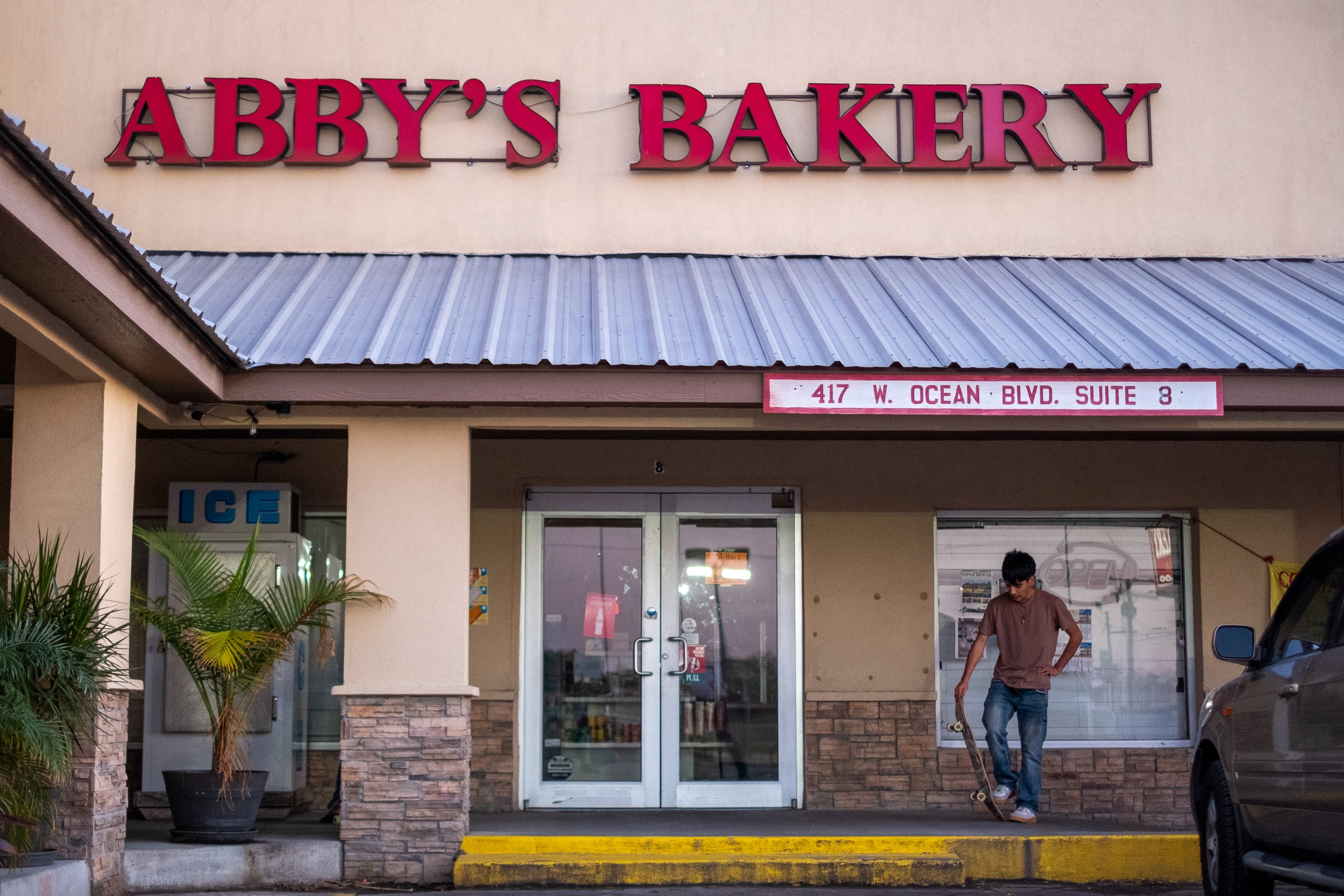
Checkpoint Carlitos: Why Did DPS Deploy Checkpoints in the Valley?

A version of this story ran in the November 2013 issue.
I don’t know about you, but if the Texas Department of Public Safety (DPS) set up checkpoints in my neighborhood, I’d want to know precisely why my community was being targeted. I’d want some answers. On Sept.15, DPS launched what it called a “multi-agency law enforcement initiative” that included setting up roadside checkpoints in the Rio Grande Valley, ostensibly to enforce traffic laws. (The initiative, later dubbed Operation Strong Safety, also included increased river, air and road patrols to address so-called “significant criminal activity,” as well as commercial vehicle enforcement.) From the beginning, locals worried that DPS troopers at the checkpoints were going after undocumented immigrants, Arizona “papers please”-style. Rumors of deportations and immigration-related arrests spread quickly on the Internet. Within days, one Facebook page, written in Spanish, had more than 50,000 people warning each other of roadblocks throughout the mid-Valley.
In early October, three weeks after Operation Strong Safety began, it ended. To date, DPS has offered little in the way of justification for its big border incursion, and we’re left with many questions about DPS’ experiment with checkpoints.
Although there is no evidence that DPS was arresting and deporting people, Valley residents remain suspicious. If this operation was really about enforcing traffic laws, why was it in the Valley? Why not put checkpoints in Houston or Dallas or, for that matter, Lubbock?
It makes you wonder, especially given DPS Director Steve McCraw’s obsession with border security.
Some civil libertarians call the border a “Constitution-free zone”—bristling with drones, Border Patrol agents, internal checkpoints and a border fence constructed by suspending dozens of federal statutes.
Last year, a DPS trooper shot and killed two Guatemalan immigrants from a helicopter in Hidalgo County. Neither man possessed drugs or firearms.
The fallout from the incident caused DPS to reverse the policy, though airborne snipers can still fire at a vehicle if they think a suspect “is about to use deadly force.” So you can’t blame people in the Valley if they get a little jumpy when DPS starts setting up checkpoints.
State Rep. Terry Canales (D-Edinburg) was prompted to publicly question McCraw about the initiative after his office received about 100 calls related to the checkpoints—centered in Hidalgo County—during a two-day period. Constituents claimed the checkpoints were targeting poor neighborhoods, especially colonias, where many undocumented immigrants live. How many troopers were stationed in Hidalgo County versus the rest of the state? Canales wanted to know. How much were the checkpoints costing taxpayers? What data justified DPS’ claims that the Valley is a hotbed of “criminal activities, unsafe driving behaviors” and “vehicle crashes”? Most important, how could DPS justify picking on the Valley instead of more populous areas of Texas?
McCraw and DPS didn’t really answer the questions, said Curtis Smith, Canales’ chief of staff who I spoke to during the operation. “They gave us the same information that was in the press about why Hidalgo County versus other places,” Smith said. “We have a huge issue with drivers without insurance, but traffic issues I’m not so sure. I don’t think we’ve gotten much in terms of real data.”
Publicly, McCraw claimed the Rio Grande Valley leads Texas in the number of citations DPS issued to drivers for lack of driver’s licenses in 2010, 2011 and 2012, and added that the Valley is second only to the Houston area for “no insurance” citations issued by DPS during the same period.
The reason the Valley leads the state in unlicensed drivers is probably that Texas no longer allows undocumented immigrants to obtain driver’s licenses. Still, National Highway Traffic Safety Administration statistics show that Hidalgo and Cameron counties’ per capita fatal crash rates were below the state average in 2012. When you consider that number, and that Houston has more uninsured drivers than the Valley, it makes you wonder: Was DPS unfairly picking on the Valley and its immigrant population?
For years, some law-enforcement groups have pushed the Legislature to approve statewide checkpoints for drunk drivers, but legislators have repeatedly rejected the proposal. Yet most of the state’s leaders hardly bat an eye when roving checkpoints are deployed “down there.”
I emailed DPS spokesperson Tom Vinger to ask when DPS would be staging roadblocks in Harris County and got a noncommittal response: “Future regulatory checkpoints will be assessed following the current initiative.”
On October 24, DPS released the results, comparing data from that time period with that of three weeks prior, though the department still failed to address Canales’ concerns. Without further enlightening us about how much the program cost, where checkpoints were located or how they were chosen, the report stated that troopers issued 281 citations and 249 warnings for driver license, liability insurance, vehicle registration or inspection violations. Twenty-nine arrests were made for outstanding warrants and there was a 13 percent increase in driver license transactions at area driver license offices, including new and renewal driver licenses compared to the three weeks prior.
The report also reiterated that checkpoints were never used to ascertain immigration status, so no immigration arrests were made. Moreover, the report said, U.S. Border Patrol was not involved in this aspect of the initiative. The report added that area traffic crashes decreased by 18 percent during the operation as compared to the three weeks prior, while injury crashes decreased by 20 percent and fatality crashes by 25 percent.
ACLU of Texas Executive Director Terri Burke remains unimpressed. “While DPS has released a self-serving account of the operation, it continues to withhold information about the checkpoints from government watchdogs who have requested it under the [Texas] Public Information Act,” she said in a press release, referring to a request her agency filed on October 4. “We again call on DPS to give a full accounting of its actions so that the public can ascertain the truth of what happened at these checkpoints.”
The DPS report stated the agency will continue to conduct surge operations along the Texas-Mexico border as necessary to specifically combat increases in Mexican cartel drug and human smuggling activity and related criminal activity, such as felony pursuits, stash houses and home invasions.
While the motives behind the initiative remain in question, one thing is certain. McCraw succeeded in uniting a Valley community that historically has not been all that vocal about immigrant rights. If DPS is itching for a fight on the border, it may get one—not from drug cartels, but from people who live there.

